 W
WCarl William Ackerman was an American journalist, author and educational administrator, the first dean of the Columbia School of Journalism. In 1919, as a correspondent of the Public Ledger of Philadelphia, he published the first excerpts of an English translation of The Protocols of the Elders of Zion but changed the text so that it appeared to be a Bolshevik tract.
 W
WGustavo Dodt Barroso was a Brazilian writer and politician associated with Brazilian Integralism. He was also known by the pseudonymn João do Norte
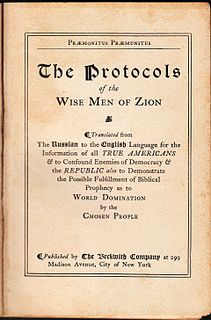 W
WThe Beckwith Company was a publishing entity in 1920, based in New York City. It is remembered for publishing a second edition of the forged Protocols of the Elders of Zion, more specifically a second translation from the Russian language into the English language.
 W
WHerman Bernstein was an American journalist, poet, novelist, playwright, translator, Jewish activist, and diplomat. He was the United States Ambassador to Albania and was the founder of The Day, the Jewish daily newspaper.
 W
WHermann Ottomar Friedrich Goedsche, also known as his pseudonym Sir John Retcliffe, was a German writer who was remembered primarily for his antisemitism.
 W
WJohn Horne Blackmore, a school teacher and principal by training, was the first leader of what became the Social Credit Party of Canada, a political party in Canada that promoted the social credit theories of monetary reform.
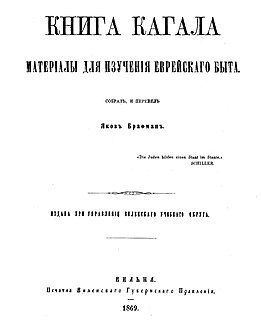 W
WIakov Aleksandrovich Brafman, commonly known as Jacob Brafman, was a Russian Jew from near Minsk, who became notable for converting first to Lutheranism and then the Russian Orthodox Church. He advanced conspiracy theories against the qahal and the Talmud. Brafman's works The Local and Universal Jewish Brotherhoods (1868) and The Book of the Kahal (1869) were foundational texts in establishing a theoretical basis to modern antisemitic thought in Russia and established a framework for themes later covered in The Protocols of the Elders of Zion.
 W
WVladimir L'vovich Burtsev was a revolutionary activist, scholar, publisher and editor of several Russian language periodicals. He became famous by exposing a great number of agents provocateurs, notably Yevno Azef in 1908. Because of his own revolutionary activities and his harsh criticism of the imperial regime, including personal criticism of emperor Nicholas II, he was imprisoned several times in various European countries. In the course of his life, Burtsev fought oppressive policies from Tsarism in Imperial Russia, followed by the Bolsheviks and later Adolf Hitler's National Socialism.
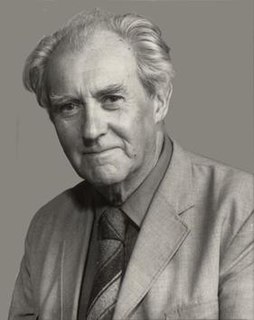 W
WNorman Rufus Colin Cohn FBA was a British academic, historian and writer who spent 14 years as a professorial fellow and as Astor-Wolfson Professor at the University of Sussex.
 W
WCharles Edward Coughlin, commonly known as Father Coughlin, was a Canadian-American Roman Catholic priest who was based in the United States near Detroit. He was the founding priest of the National Shrine of the Little Flower church. He was one of the first political leaders to use radio to reach a mass audience: during the 1930s, an estimated 30 million listeners tuned to his weekly broadcasts.
 W
WThe Dearborn Independent, also known as The Ford International Weekly, was a weekly newspaper established in 1901, and published by Henry Ford from 1919 through 1927. The paper reached a circulation of 900,000 by 1925, second only to the New York Daily News, largely due to a quota system for promotion imposed on Ford dealers. Lawsuits regarding anti-Semitic material published in the paper caused Ford to close it, and the last issue was published in December 1927. The publication's title was derived from the Detroit suburb of Dearborn, Michigan.
 W
WThe Dialogue in Hell Between Machiavelli and Montesquieu (in the original French Dialogue aux enfers entre Machiavel et Montesquieu ou la politique de Machiavel au XIXe siècle) is a political satire written by French attorney Maurice Joly in protest against the regime of Napoleon III, a.k.a. Louis-Napoléon Bonaparte who ruled France from 1848-1870. It was translated into English in 2002. Small portions were translated in 1967 as an appendix to Norman Cohn's Warrant for Genocide, which identifies it as the main source of the later Protocols of the Elders of Zion.
 W
WLord Alfred Bruce Douglas was a British poet and journalist best known as the lover of Oscar Wilde.
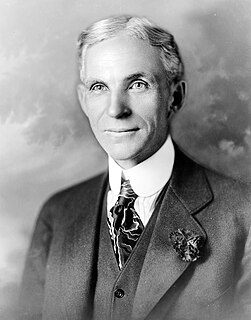 W
WHenry Ford was an American industrialist and business magnate, founder of the Ford Motor Company, and chief developer of the assembly line technique of mass production. By creating the first automobile that middle-class Americans could afford, he converted the automobile from an expensive curiosity into an accessible conveyance that profoundly impacted the landscape of the 20th century, considering him to be a revolutionary in the sector.
 W
WHarris Ayres Houghton was a physician and member of the United States military intelligence community during and shortly after World War I. His fame, or rather infamy, is due to the anonymous translation and publication from the Russian language into the English language, of the Protocols of the Elders of Zion in the United States in 1920. The lead title he's responsible for producing is "Praemonitus Praemunitus."
 W
WThe International Jew is a four-volume set of antisemitic booklets or pamphlets originally published and distributed in the early 1920s by the Dearborn Publishing Company, which was owned by Henry Ford, the American industrialist and automobile manufacturer.
 W
WMaurice Joly (1829–1878) was a French publicist and lawyer known for his political satire titled Dialogue aux enfers entre Machiavel et Montesquieu ou la politique de Machiavel au XIXe siècle, that attacked the regime of Napoleon III. Available English translations include: Dialogues in Hell between Machiavelli and Montesquieu by Herman Bernstein, and The Dialogue in Hell Between Machiavelli and Montesquieu by John S. Waggoner.
 W
WPavel Aleksandrovich Krushevan was a journalist, editor, publisher and an official in Imperial Russia. He was an active Black Hundredist and was known for his far-right, ultra-nationalist and openly antisemitic views and was the first publisher of The Protocols of the Elders of Zion.
 W
WSergei Aleksandrovich Nilus was a Russian religious writer and self-described mystic.
 W
WThe Prague Cemetery is the sixth novel by Italian author Umberto Eco. It was first published in October 2010; the English translation by Richard Dixon appeared a year later. Shortlisted for the Independent Foreign Fiction Prize in 2012, it has been described as Eco's best novel since The Name of the Rose.
 W
WThe Protocols of the Elders of Zion or The Protocols of the Meetings of the Learned Elders of Zion is a fabricated antisemitic text purporting to describe a Jewish plan for global domination. The hoax, which was shown to be plagiarized from several earlier sources, some not antisemitic in nature, was first published in Russia in 1903, translated into multiple languages, and disseminated internationally in the early part of the 20th century.
 W
WThe Protocols of Zion is a 2005 documentary film by Jewish filmmaker Marc Levin about a resurgence of antisemitism in the United States in the wake of the September 11, 2001 attacks. Appearing on screen along with his subjects, Levin engages in a free-for-all dialogue with Arab Americans, Black nationalists, evangelists, White nationalists, Neo-Nazis, Kabbalist rabbis, Holocaust survivors, and Frank Weltner, the founder of the Jew Watch web site.
 W
WThe Public Ledger was a daily newspaper in Philadelphia, Pennsylvania, published from March 25, 1836 to January 1942. Its motto was "Virtue Liberty and Independence". For a time, it was Philadelphia's most popular newspaper, but circulation declined in the mid-1930s. It also operated a syndicate, the Ledger Syndicate, from 1915 until 1946.
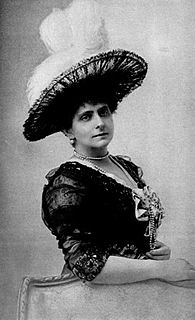 W
WPrincess Catherine Radziwiłł was a Polish-Russian aristocrat. Born in Russia into the Polish-Lithuanian House of Rzewuski, her maternal family was the Russian Dashkov-Vorontsov family. In 1873 she married the Polish-Lithuanian Prince Wilhelm Radziwiłł.
 W
WVadym Leontiyovych Skurativskiy is a Ukrainian art historian and critic, an expert in literature, philologist, and political essayist. He is a professor at the Kyiv National I. K. Karpenko-Kary Theatre, Cinema and Television University.
 W
WWarrant for Genocide: The Myth of the Jewish World-Conspiracy and the Protocols of the Elders of Zion, by Norman Cohn, is a critical work about The Protocols of the Elders of Zion.
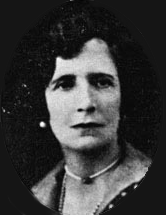 W
WNesta Helen Webster was an English far-right conspiracy theorist, who revived theories about the Illuminati. She claimed that the secret society's members were occultists, plotting communist world domination, through a Jewish cabal, the Masons and Jesuits. She blamed the group for events including the French Revolution, 1848 Revolution, the First World War, and the Bolshevik Revolution.
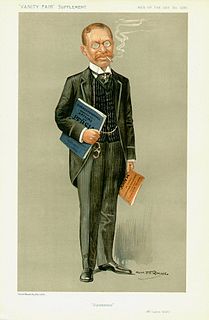 W
WLucien Wolf was an English Jewish journalist, diplomat, historian, and advocate of rights for Jews and other minorities. While Wolf was devoted to minority rights, he opposed Jewish nationalism as expressed in Zionism, which he regarded an incentive to anti-Semitism. In 1917 he co-founded the anti-Zionist League of British Jews.